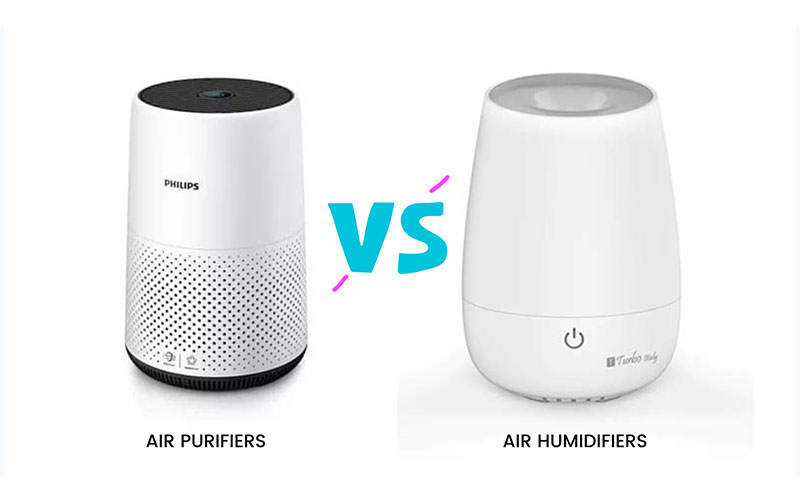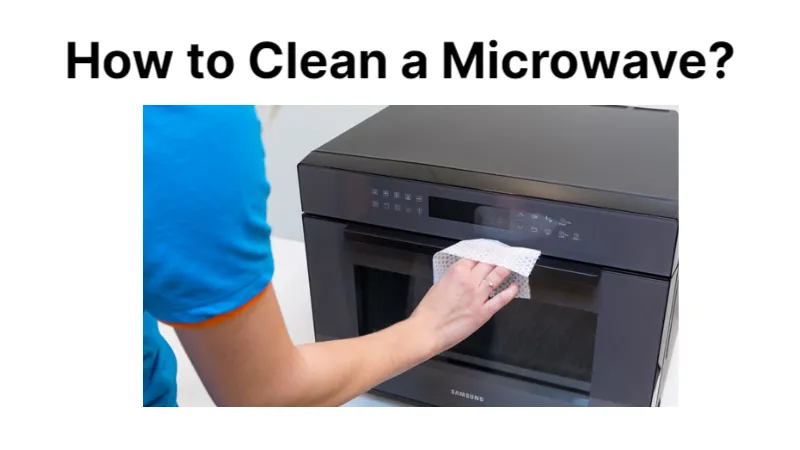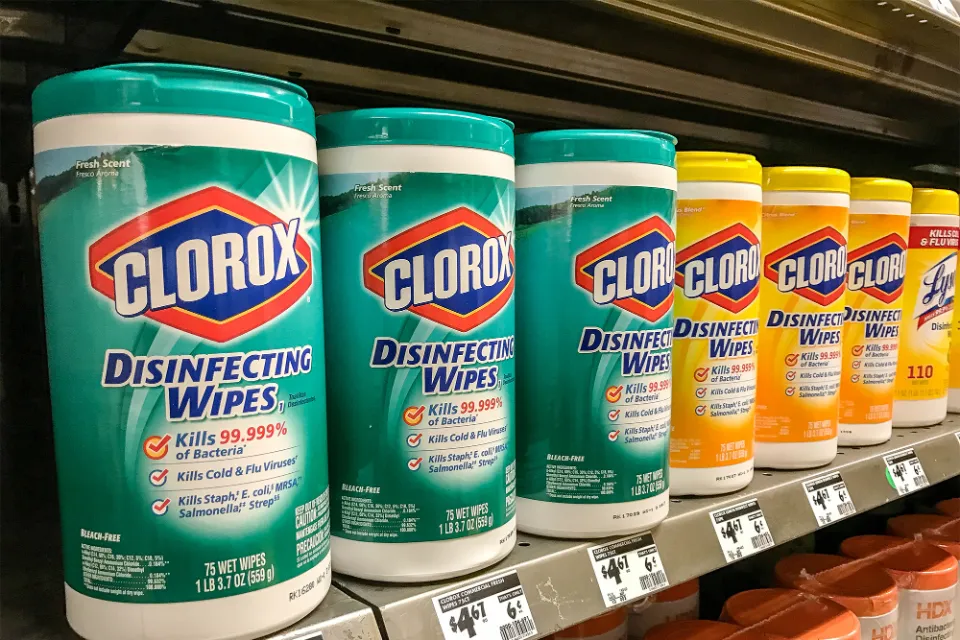Many people use air purifiers at home. Many people additionally use humidifiers. Even some people possess both. What are the differences? Let’s talk about air purifiers vs humidifiers.
Air purifiers eliminate air pollutants, improving the quality of the air we breathe. Simply put, humidifiers add moisture to dry air. They are typically used in the winter to combat the sensation of dry, stale air.
An air purifier and a humidifier are excellent for enhancing indoor air quality. To know which choice is best for your individual needs, however, can be challenging. As an illustration, both products are excellent for those who have sinus and respiratory problems, but they provide relief in different ways.
We will go over each device’s operation, the safest methods for using it, and when it is best to use a humidifier or an air purifier.
Differences Between Air Purifiers and Humidifiers
As we’ve seen, air purifiers and air humidifiers differ in a number of ways. You can find the summation of all the relevant differences in this comparison table:
| Purifier vs Humidifier | Air Purifiers | Humidifiers |
| What Do They Do: | By removing air pollutants (dust, pollen, smoke, dust mites, mold, specific bacteria, and viruses), clean the air inside of your home. | Increase the indoor humidity from dry air’s 20–30% range to the normal range (30–50%). |
| How Do They Work: | Large, small airborne particles are removed, and unwelcome odors are absorbed by air filters (HEPA, activated carbon, pre-filters). Airflow is created by fans. | Use either an evaporative hot mist made with heated water heated by electricity or a cool mist made with ultrasonic waves. |
| Help With Allergies: | It appears that way based on a significant number of research studies. | According to some studies, this might also aggravate allergies. |
| Help With Asthma: | Numerous research studies appear to support this. | Some studies indicate that to a lesser extent. |
| Do They Clean Air: | Yes | No |
| Seasonality: | Throughout the year | Winter primarily |
| Cost: | Higher ($100-$900) | Lower (Less than $200) |
| When Best To Use Them: | When we have low indoor air quality | When we have low indoor humidity levels |
Depending on your unique needs, you can choose whether an air purifier or humidifier is preferable.
Types of Air Purifiers
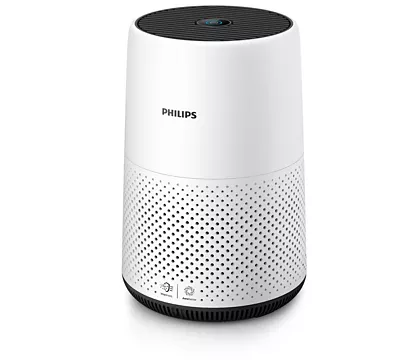
Air purifiers come in various types and each unit can contain one or more of the following air cleaning functions:
HEPA Filtration
This is a very dense filter that captures particulates in the air. A “True HEPA Filter” is the best kind to look for on an air purifier because it’s certified to remove 99.97% of all particles as small as 0.3 microns in size. It works well to get rid of pollutants like pet dander, allergens, dust, and particulate matter.
Carbon Filtration
A unique variety of activated carbon is used in this filter to trap gases, odors, chemicals, and volatile organic compounds (VOCs). In addition to reducing airborne toxins, it keeps a home smelling fresh.
Negative Ionization
This air purification technology releases charged ions into the atmosphere, which cling to airborne impurities. In addition to making pollutants fall to the ground, this process weighs down the particles to make them easier for the internal air filters to capture. Ultra-fine particles with a size of 0.01 microns can be removed using this process.
Ultraviolet (UV) Light
By destroying their molecular DNA structure, this particular light eliminates airborne bacteria and viruses. The UV light in the air purifier zaps microorganisms and pathogens as air passes through it, sanitizing and cleaning the air that returns to the space.
Additionally, there are two types of air purifiers: portable and whole-house systems. Because they are more affordable and effective in single rooms, portable air purifiers are what we typically advise. But if you want an air purifier that can clean the full volume of air that flows through your furnace, check out our best whole home air purifier guide for more details.
Types of Humidifiers
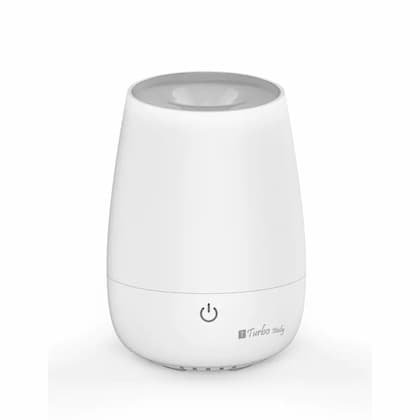
Humidifiers come in three common types:
Warm Mist
These humidifiers warm water by gently boiling it, creating a warm mist that you can see and feel in the air.
Cool Mist
These humidifiers have a filter that collects dirt, minerals, and other impurities while dispersing a refreshing invisible mist into the air.
Ultrasonic
These humidifiers employ an ultrasonic-vibrating metal diaphragm. Through this procedure, water droplets are produced and then propelled into the air by a fan to produce a cool, lighter mist that quickly disperses humidity into the space.
How Do Air Purifiers and Humidifiers Impact Your Health?
The effects of air purifiers and humidifiers on the quality of the air can differ and have an impact on our health. Here are some of the most common conditions:
Asthma and allergies – Some air cleaners are made to lessen airborne allergens like dust mites, pet dander, pollen, or mold spores. A lot of people with allergies or asthma use an air purifier to lessen their exposure to these triggers. These allergens are spread by airborne particles, many of which are so small they remain suspended for long periods of time. The only technology that can effectively eliminate allergens is the Molekule air purifier, while conventional air filters capture these particles.
The levels of allergens are unaffected by humidifiers, however. If your nasal passages are dry and inflamed, they may instead help symptoms feel less severe. Note that humidifiers do not reduce allergy or asthma symptoms, and they might even increase the risk of allergies and asthma (Svendsen, Gonzales & Commodore, 2018). Additionally, if a humidifier is not cleaned thoroughly, it may grow mold and release mold spores into the air, causing allergy and asthma symptoms.
Colds, flu and respiratory irritation – Although some airborne particles that carry viruses are so small that they can pass through standard air filters, common air purifiers still capture these particles. The removal of other respiratory irritants from the air by an air purifier may help you feel better even though it won’t cure an already-existing cold.
According to the NIH, a humidifier may help ease the discomfort of a stuffy nose and colds or the flu. The right amount of humidity might also shield you from viruses. Lapidus et al.’s study, among others) claims that., 2013), increasing the humidity in the air to a range of 40-60 percent reduces the infectiousness of viruses. It’s also critical to realize that a humidifier won’t make you feel better if you already have a sickness, but it can lessen symptoms by preventing dry, scratchy throat and nose.
Dry air – Since an air purifier doesn’t add moisture to the air, it can’t help when the air is too dry, which can make a variety of respiratory conditions worse, including sinusitis, bronchitis, and asthma.
By increasing air moisture, a humidifier raises relative humidity and alleviates the effects of dry air. Your nose and throat may become irritated by excessively dry air, which frequently occurs in the winter when the heater is on.
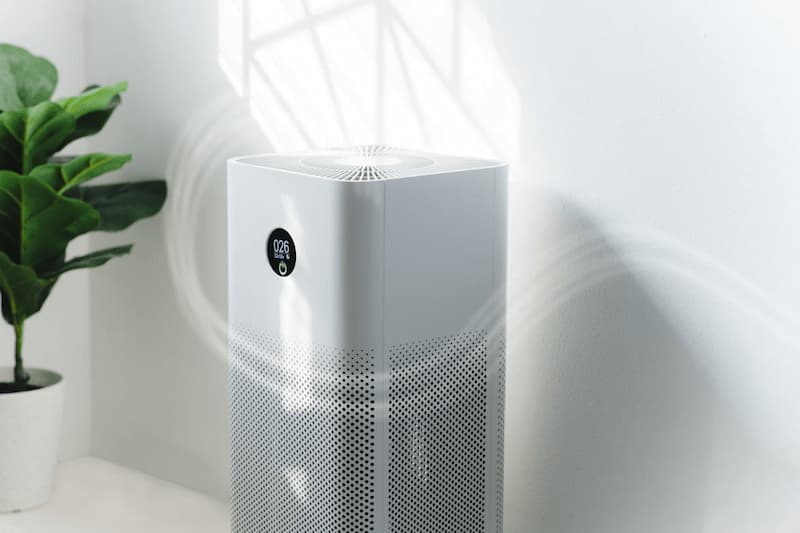
Which is Better for You: An Air Purifier Or Humidifier?
An air purifier might be best if:
- You have respiratory problems like asthma, allergies, or another condition made worse by irritable air.
- You want to decrease the amount of pet danderor allergens present in your home’s air.
- You want a good dust remover machineto reduce the amount of dust that accumulates indoors.
- You want to get rid of household odors due to cooking, pets, smoke, or mold.
- You want to lower the amount of toxins in the air you breathe.
- Less irritation in your nose, throat, and lungs will help you sleep better at night.
- You desire a more hygienic and sterile home environment.
A humidifier might be best if:
- You reside in a dry or arid environment.
- You want to increase the moisture levels in your home’s air.
- You have frequent nosebleeds or sinuses issuesthat are aggravated by dry air.
- In the winter, you have dry skin, hair, or eyes.
- You need relief from respiratory problems brought on by dry air.
- You have excessive snoring at nightthat comes from dry air conditions.
Can I Use Both An Air Purifier and Humidifier Together?
It is possible to use an air purifier and a humidifier together, even in the same room, despite the fact that they serve entirely different purposes (removing pollutants from the air as opposed to adding moisture to it). However, you should avoid putting them too close together because the humidifier’s moisture could clog the air purifier’s filters or otherwise reduce its effectiveness. For instance, if a humidifier’s output were constantly directed into a HEPA filter, the constant dampness could encourage the development of mold or bacteria on the filter. Placing them on opposite ends of the room will help prevent this.
Humidifiers and air purifiers both require regular maintenance in order to function properly. This necessitates frequent cleaning for a humidifier. Additionally, it’s crucial to use distilled water with ultrasonic humidifiers to prevent adding mineral particles to the air, which could be harmful to your lungs, especially those of young children and infants. Regular filter replacements are the main component of air purifier maintenance.
Frequently Asked Questions
Can You Use a Humidifier and Air Purifier in the Same Room?
Both an air purifier and a humidifier can be used in the same space. They can both be used simultaneously. Each device has a distinct function. A humidifier adds moisture to the air to make it more comfortable while an air purifier removes pollutants from the air.
The humidifier adds moisture back into the air to make it more comfortable to breathe while the air purifier removes pollutants from the air.
Do Humidifiers Clean the Air?
The air is not purified by a humidifier. But it does have a useful purpose in the house. Humidifiers raise the air’s humidity levels by adding moisture rather than purifying it. In comparison to dry air, this can make the air more pleasant to breathe.
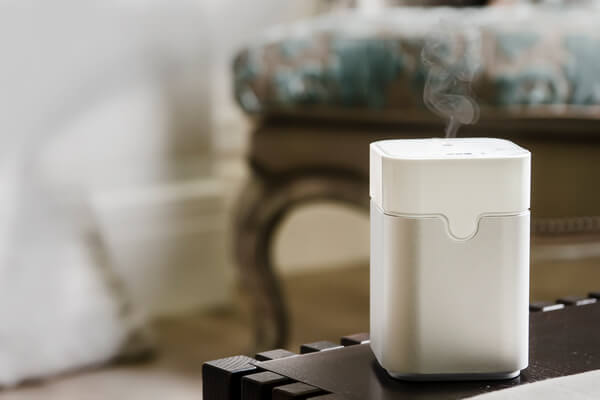
Do Humidifiers Help With Dust?
Dust cannot be reduced with humidifiers. A humidifier does nothing to remove dust particles from the air; it only adds moisture to the air. If you don’t maintain the humidity level between 30 and 50%, humidifying the air with a humidifier can create the ideal environment for dust mites to thrive.
Air Purifier Vs Humidifier for Baby?
You could use both. An air purifier will give your baby cleaner air in their room and help promote better health.
If the air is dry, a humidifier will add moisture back to help your baby breathe and feel more comfortable and help reduce cough and cold symptoms. A cool-mist humidifier can help to constrict the nasal passages, improving the breathing of infants. When the nasal passages swell, a warm mist humidifier can have the opposite effect and make breathing more challenging.
A baby’s room with an air purifier will help keep the air clean and remove unwelcome particles. See our best air purifier for baby guide for the top product reviews. Reduced exposure to contaminants that could lead to cold and flu illnesses is possible thanks to air purifiers. Additionally, they remove particles from the air that come from pollen, mold spores, gasses released by some plastics, and toxins found in tobacco smoke.
Air Purifier Or Humidifier for Asthma?
Both devices function effectively, but an air purifier is the better option.
By removing common asthma triggers from the air, an air purifier prevents you from breathing them in. Although it won’t get rid of the triggers, a humidifier can improve the quality of the air. If dry air is the source of asthma symptoms, a humidifier can help. It has no effect on asthma in terms of curing it or preventing attacks.
One thing to keep in mind is that if you use a humidifier for an extended period of time and raise the humidity level above 60%, these devices may aggravate your asthma or set off an attack. This is so because mold, dust mites, and harmful bacteria can all multiply more readily in environments with high humidity levels. For long-term use, an air purifier is best for asthmatics. There is a decreased likelihood of an attack starting when air pollutants are removed.
Final Words
If you’re deciding between an air purifier and a humidifier, you should now be able to determine which appliance will suit your needs the best. As you now know, a humidifier and an air purifier can both be good for your home and your health. And in many cases, people decide to use both indoors in order to find the solace and relief they require.
I appreciate your reading.
